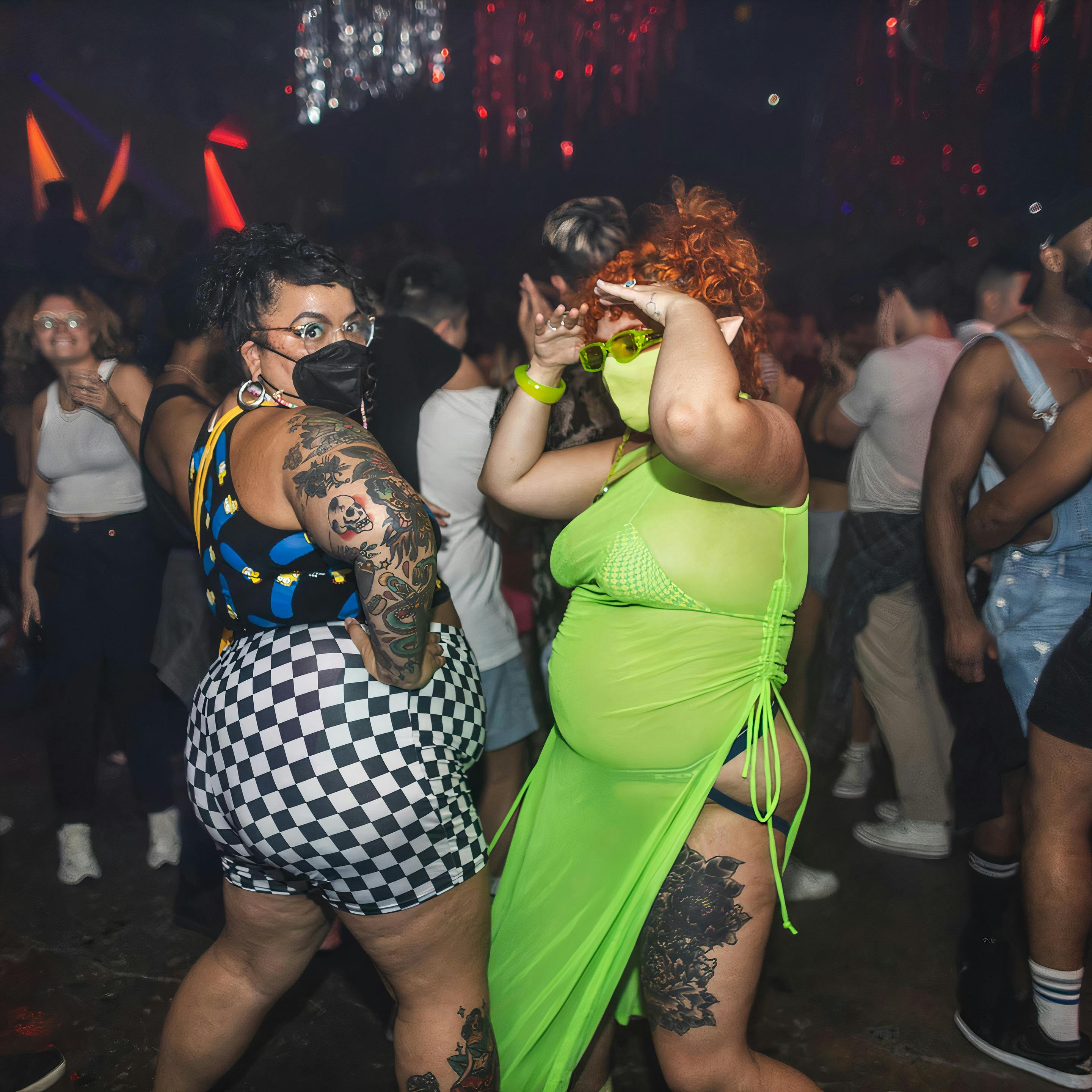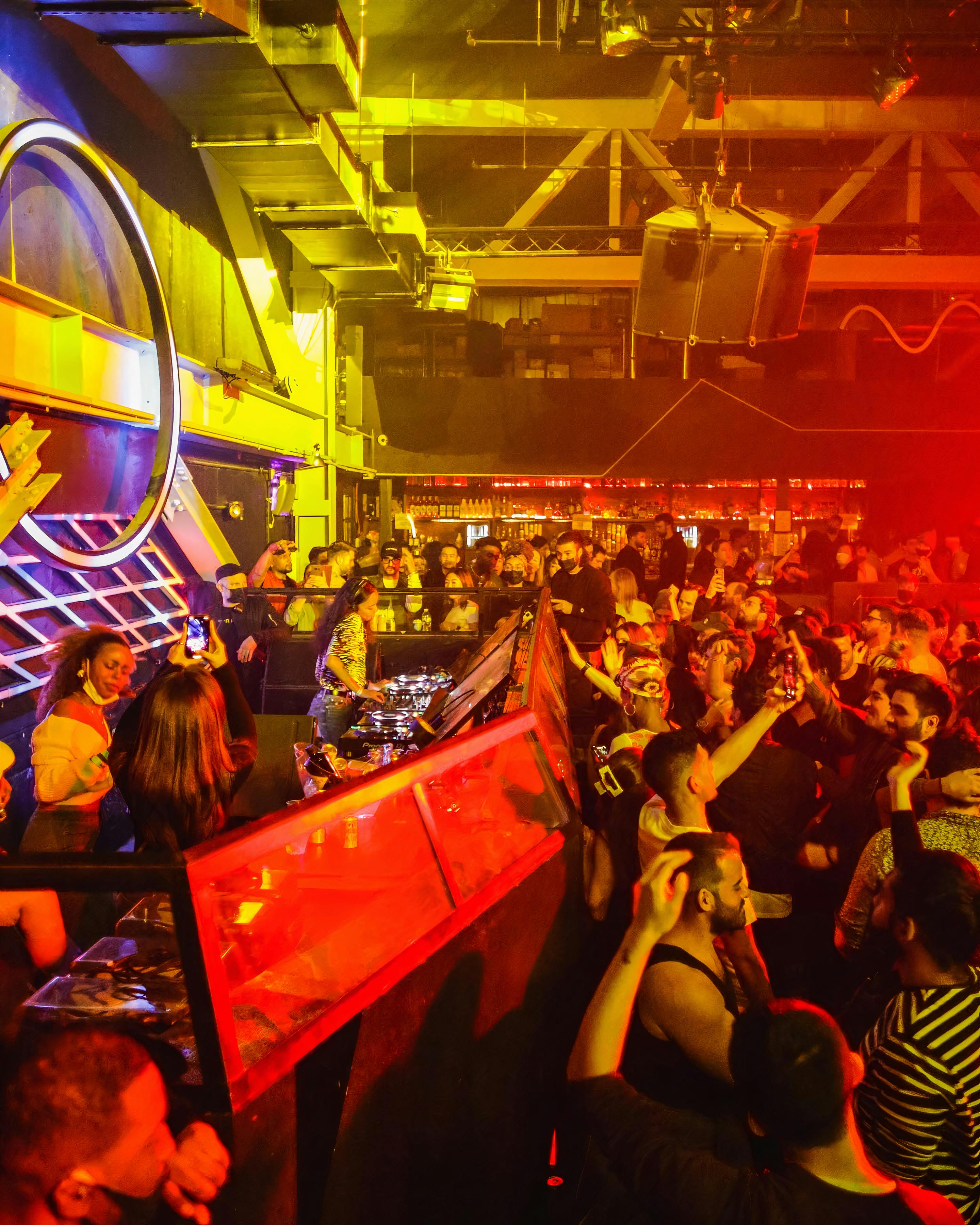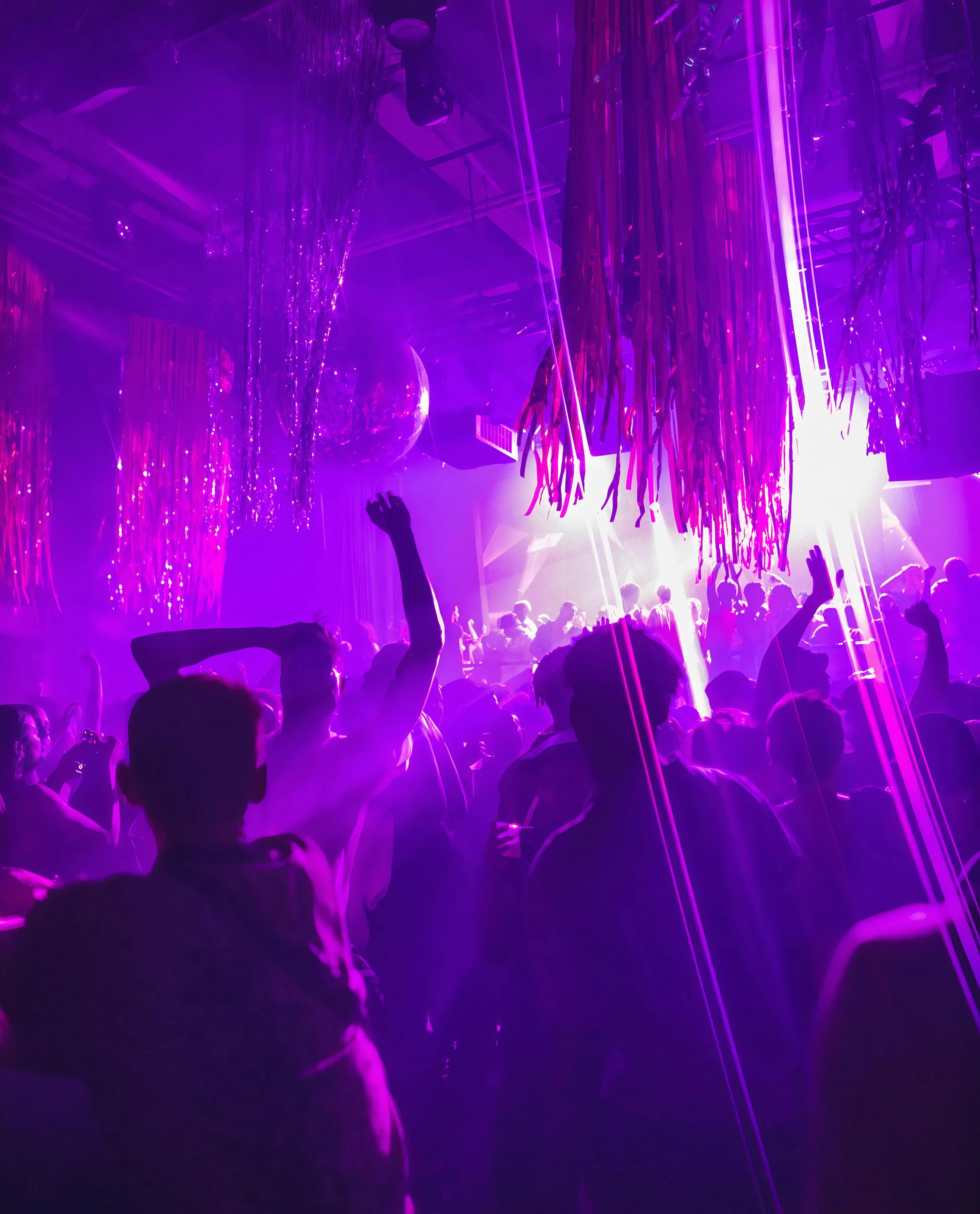Nadine Noor Ahmad still remembers that first night back on the dancefloor in September 2021. Pxssy Palace, the club night they co-founded for queer womxn, non-binary and trans people of colour in 2015, was back at Colour Factory in Hackney Wick for its first party since London went into lockdown in March 2020. A thousand guests showed up for the sold-out event – dancing, kissing and even taking to the runway to perform. Behind the main stage, the words “Home is where the dance is” glowed bright.
For Ahmad, this line has long been a personal maxim. “The dancefloor has felt like my home even more than the place that I was staying at whatever time. And I think a lot of queer people, they feel that, too,” they explain. “I was so fucking overwhelmed that night, but in a good way. Obviously, there was not much going on during lockdown, so I was like, ‘Oh my god, someone’s outfit! Oh my god, someone’s dancing!’ Everywhere I looked, there were so many beautiful things happening at once.”
The success of Pxssy Palace’s return – and of its next two monthly parties, which also sold out almost instantly – seemed to quash any doubts about the return of the dancefloor in a post-pandemic scene. (“Will clubbing survive the pandemic?” asked one Guardian headline last April.) But it seemed clubbers were not only willing, but eager, to breathe and sweat all over strangers to an electronic soundtrack.


